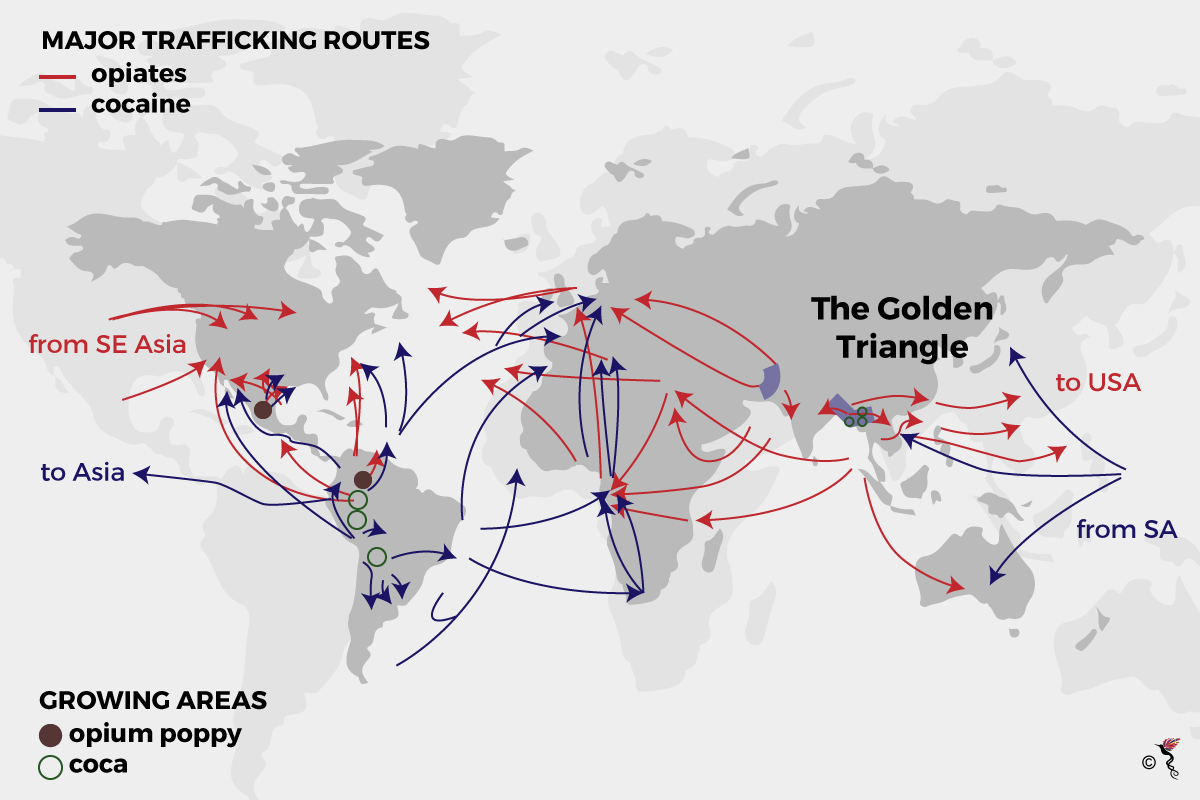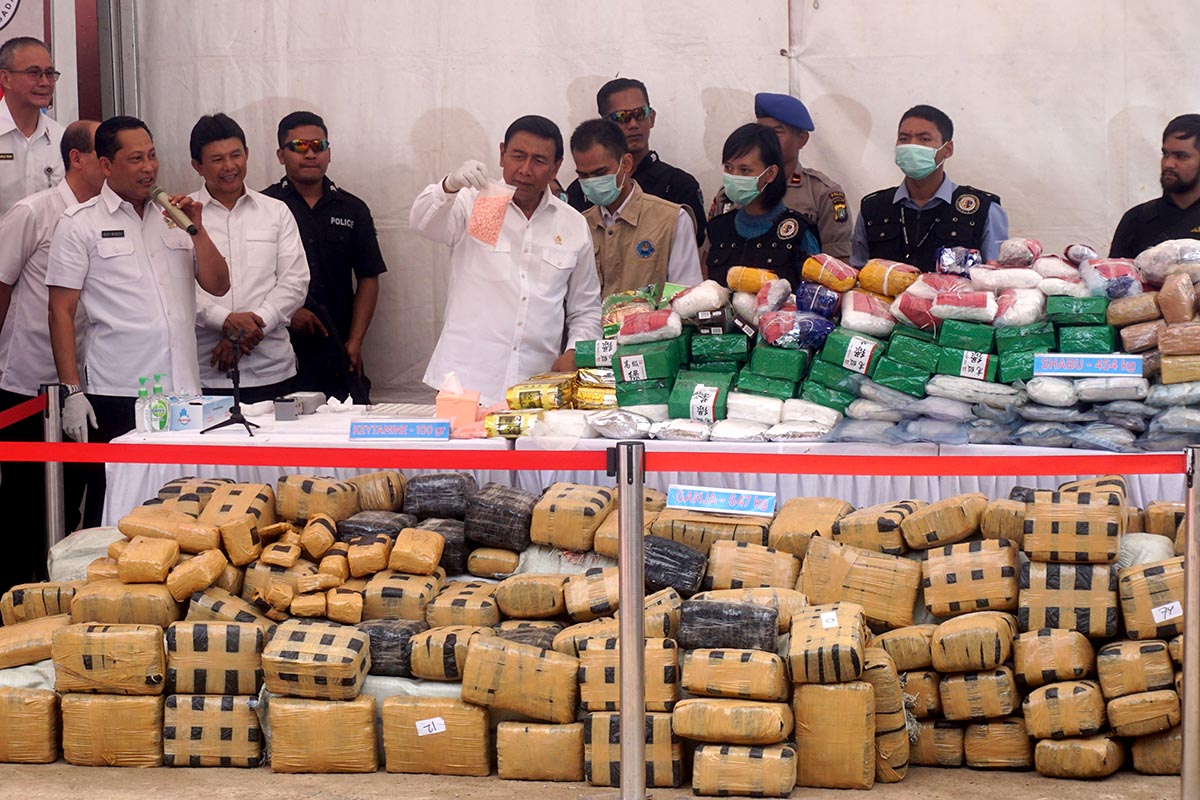Vietnamese police have seized US$3 million worth of heroin hidden inside packets of tea and smuggled from Laos on Thursday, which is the largest recorded haul of the drug in the country.
According to AFP, “a police sting in the mountainous northern Vietnamese province of Dien Bien on Tuesday caught a man aged 44 and a woman in her late 30s, carrying 170 kilogrammes of heroin on the back of their motorbikes.” The drugs were also said to be smuggled over from Laos and packed into scores of packets of Thai branded tea.
"The operation was very successful, capturing an especially large amount of heroin," the report quoted Le Cong Binh, deputy head of Dien Bien provincial police.
Anyone found guilty of possessing more than 600 grams of heroin or more than 20 kilograms of opium in Vietnam will have to face some of the toughest anti-drug laws in the world which includes the death penalty.
Vietnam is known to be a strategic transit point in the "Golden Triangle". The Golden Triangle is an area covering 367,000 square miles in Southeast Asia where a significant portion of the world’s opium has been produced since the beginning of the twentieth century. This area is centered around the meeting point of the borders that separate Laos, Myanmar, and Thailand. The Golden Triangle’s mountainous terrain and distance from major urban centers make it an ideal location for illicit poppy cultivation and transnational opium smuggling.
In other recent news, Indonesian authorities seized 1.3 tonnes of marijuana on New Year’s Eve and have arrested six people in a major drug bust. The drugs were confiscated at a port on the southern tip of Sumatra island.
As reported by AFP, West Jakarta police chief Idham Aziz said drug-related cases in West Java - Indonesia's most populous province - were increasing. "Narcotics cases between 2015 - 2017 are up 11.8 percent and the victims are mostly children and teenagers," Aziz said at a press conference. Indonesia, just like Vietnam, has some of the toughest anti-drugs laws in the world, including capital punishment for traffickers.
Through these two incidents, it is clear that anti-drug trafficking enforcement is working, however the main issue is still present in the region and the elephant in the room must be highlighted.

Drug trafficking routes from the Golden Triangle.
How is ASEAN tackling this issue?
The Golden Triangle supplies a record number of meth pills and crystal meth, also known as ‘ice’. These drugs are then cascaded throughout the region and as far as Europe and Australia, which has the world's highest per capita rate of ice addiction.
This means that the majority of meth production in Southeast Asia is fulfilling regional demand, but substantial amounts are also being trafficked to other parts of the world due to an actively growing market.
This is particularly relevant in the current era of regional integration and reduced border restrictions in Southeast Asia, which have the real potential for increasing cross-border trafficking of drugs and precursors.
Previously, there have been efforts by the Association of Southeast Asian Nations (ASEAN) member states through a visualisation of a Drug-Free ASEAN in 2015. This vision was created to successfully and effectively address illicit drug activities such as trafficking and abuse as well as to mitigate its negative consequences to society.
According to the “Drug-Free ASEAN 2015: Status and Recommendations” report, action plans involved significant and sustainable reduction in illicit crop cultivation, illicit manufacture and trafficking of drugs and drug-related crimes, and prevalence of illicit drug use.
However, the “drug-free ASEAN 2015” vision did not materialise.
The ASEAN Senior Officials on Drug Matters (ASOD) has been the main ASEAN body responsible for handling drug-related matters in the region. It is the main body for monitoring the implementation of the ASEAN Work Plan on Securing Communities Against Illicit Drugs 2016-2025.
Currently, the ASEAN member states are trying to tackle the issue of drug trafficking in the region through the ASEAN Cooperation Plan to Tackle Illicit Drug Production and Trafficking in the Golden Triangle (2017-2019).
Through this Plan, the members of the Safe Mekong Operation Project will take part in operational activities in 11 target areas for a duration of three years. The rest of the ASEAN member states may contribute to the ASEAN Cooperation Plan according to national capacity.
The ASEAN Cooperation Plan consists of six components; “the precursor chemicals smuggling interdiction or suppression plan; suppression of illicit drugs trafficking via land, waterways, air routes plan; investigation and arrest of major drug producers or traffickers, warrant fugitives, and suppression of drug syndicates plan; demand reduction, health, and area development promotion plan; administrative mechanisms development plan; and seeking cooperation from parties outside the Region plan.”
What is important here is that ASEAN must join hands in order to accomplish this goal to eradicate drug trafficking throughout the region as stricter enforcement and punishment alone is not enough.
Affirming this, Secretary-General of the Narcotics Control Board of Thailand, Sirinya Sitdhichai, stated in a press release, “We will proceed together with the concept that we are not leaving any countries to face the problem alone. ASEAN will be one and move forward together.”
Additional reporting by AFP.
Recommended stories:
